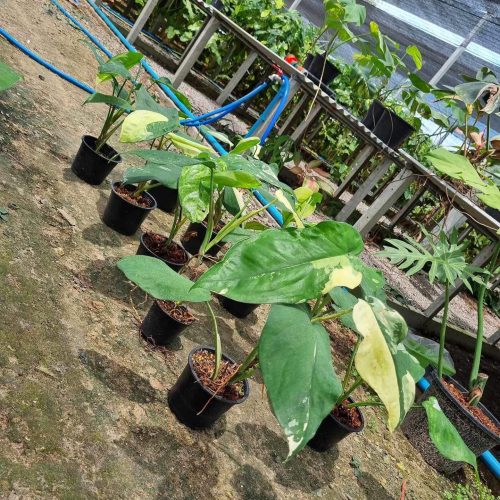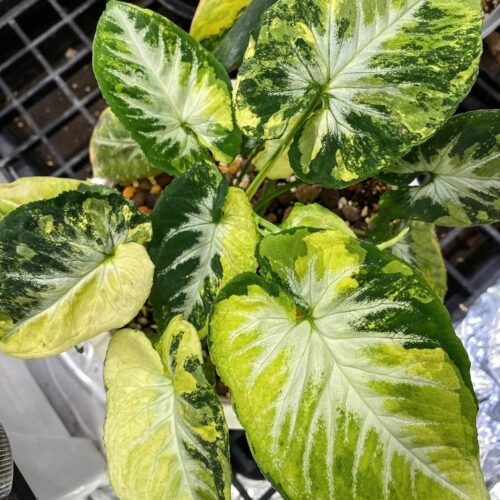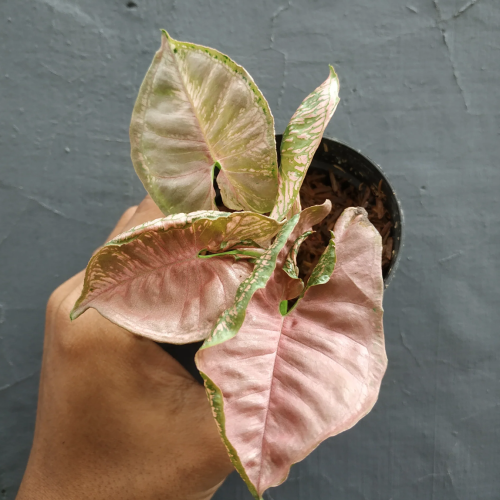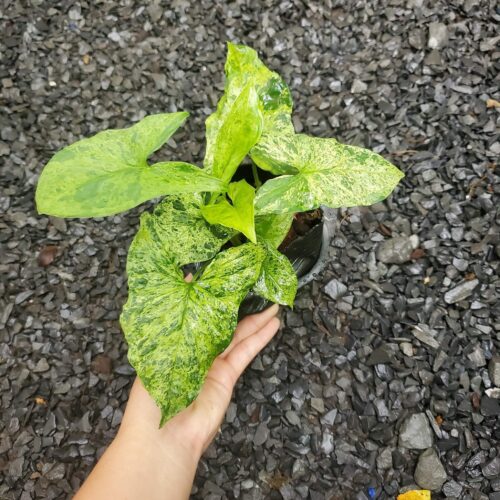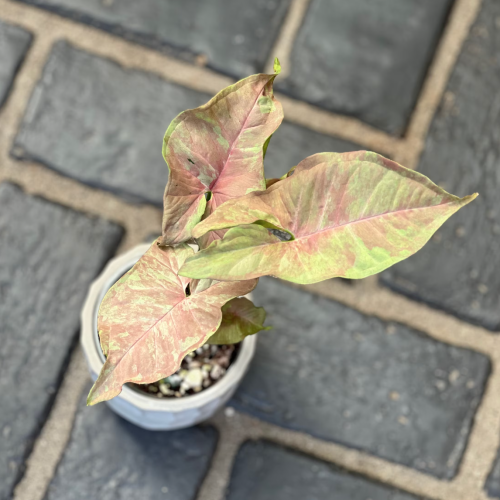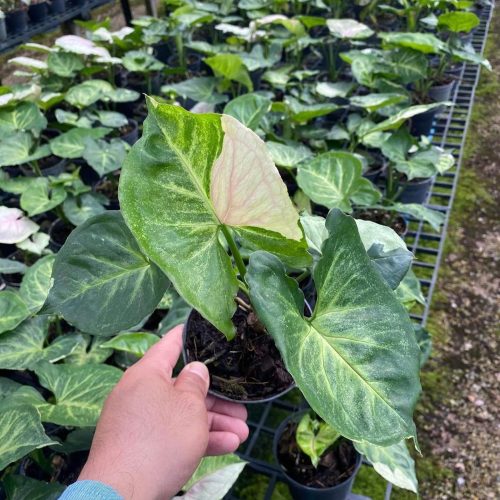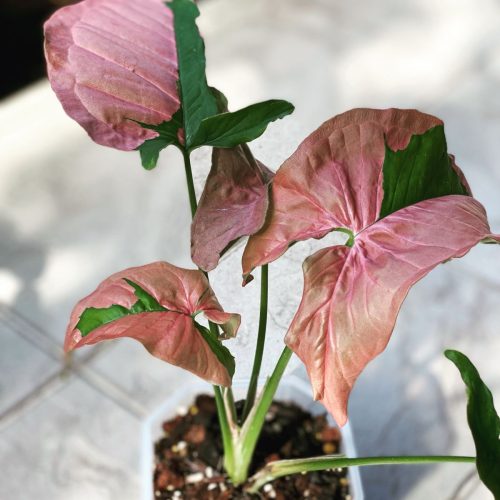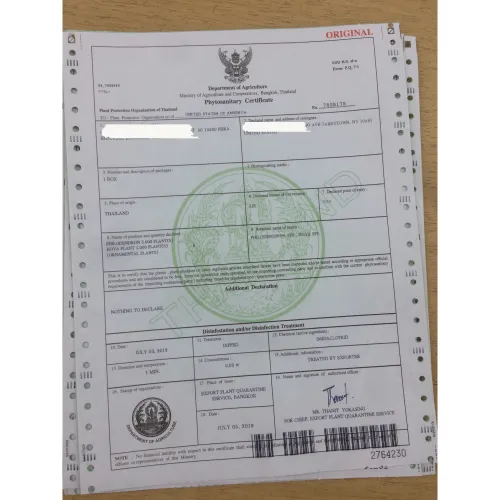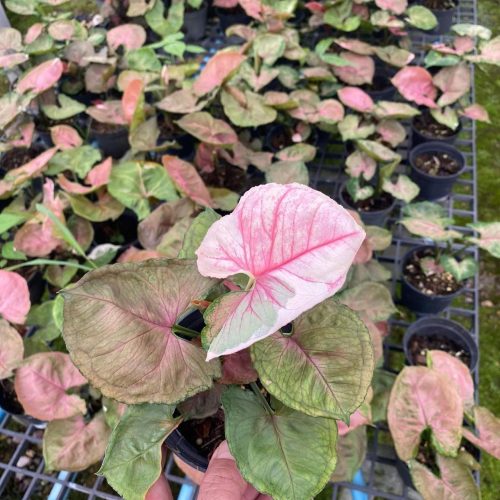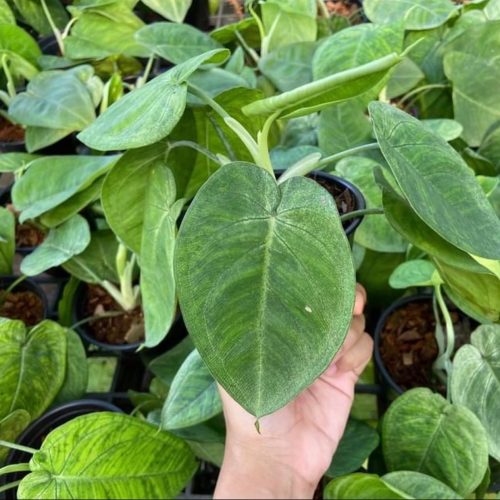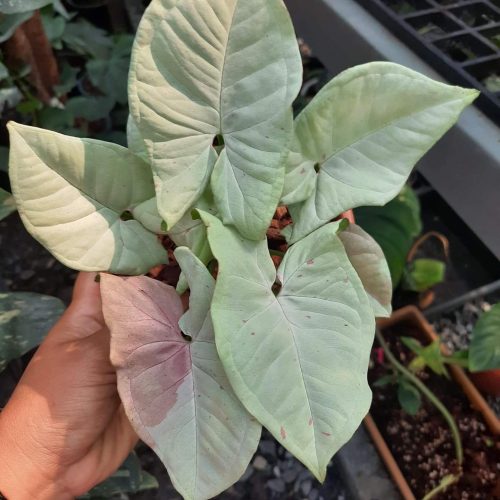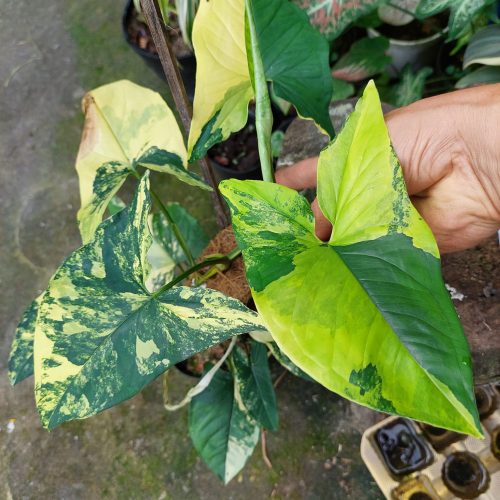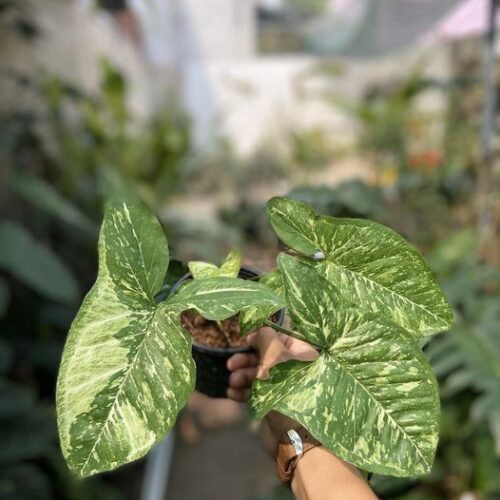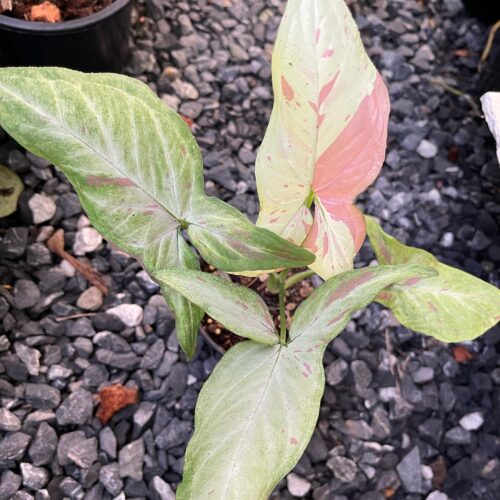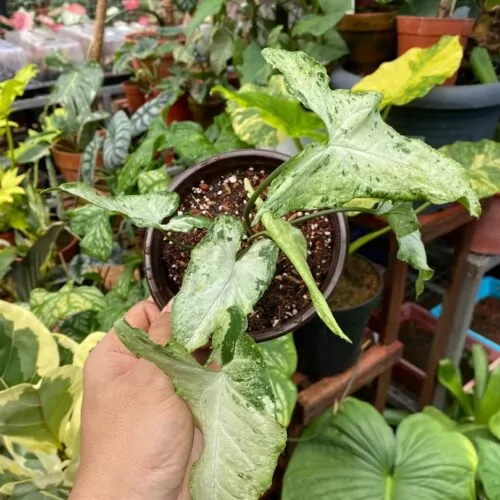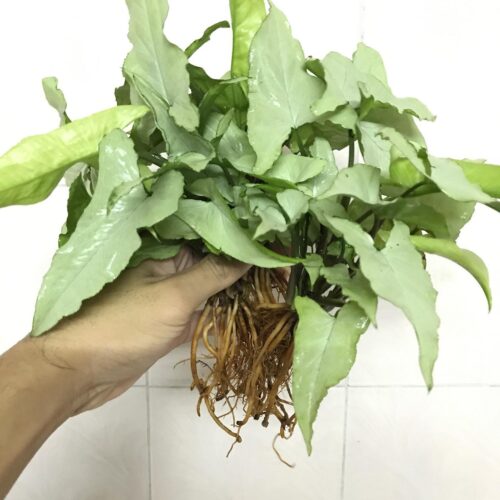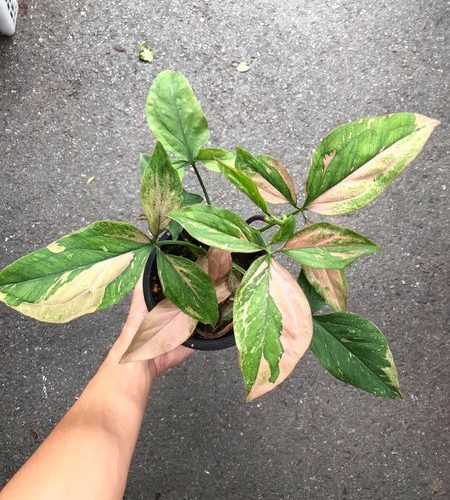The Syngonium Strawberry Ice is a delightful variety of the popular Syngonium plant, known for its stunning variegated leaves that feature shades of pink, white, and green. This guide will provide you with all the information you need to grow and care for the Syngonium Strawberry Ice successfully.
Introduction
The Syngonium Strawberry Ice is a member of the aroid plant family, which includes popular varieties like Philodendron, Monstera, and Anthurium. Native to the tropical regions of Central and South America, this plant is prized for its unique, variegated leaves that add a touch of elegance to any indoor garden. Similar to Aglaonema and Epipremnum, the Syngonium Strawberry Ice is not only beautiful but also relatively easy to care for.

Origin and Features
The Syngonium Strawberry Ice is a newer variety of syngonium that originated as a spontaneous mutation of the Syngonium Pink Splash variety.
Foliage and Growth
The Syngonium Strawberry Ice has stunning tricolor leaves featuring different shades of pink, red, and green. The leaves have a dark green central vein and base color with bright pink splotches, speckles, and streaks running through them, almost looking like strawberry ice cream.
The pink variegation becomes more pronounced as the leaves mature. New leaves emerge light green and develop more pink hues as they harden off. The variegation patterns can vary from leaf to leaf, which makes each foliage unique.
Care and Growing Conditions
Syngonium Strawberry Ice thrives well in bright indirect light. Too much direct sun can cause leaf burn. It also does well in artificial light. Keep the soil evenly moist but allow it dry out slightly between waterings. It enjoys average home and office environments with temperatures around 60°F to 80°F.
Like other syngoniums, the Strawberry Ice variety is easy to care for and more forgiving if you miss a watering or two. Just don’t overwater it. Use a well-draining potting mix and pot with drainage holes. Fertilize monthly in the growing season with a balanced liquid fertilizer diluted to half strength.
“For a deeper understanding of how to provide the best care for your Syngonium, explore our detailed Syngonium Care guide.”
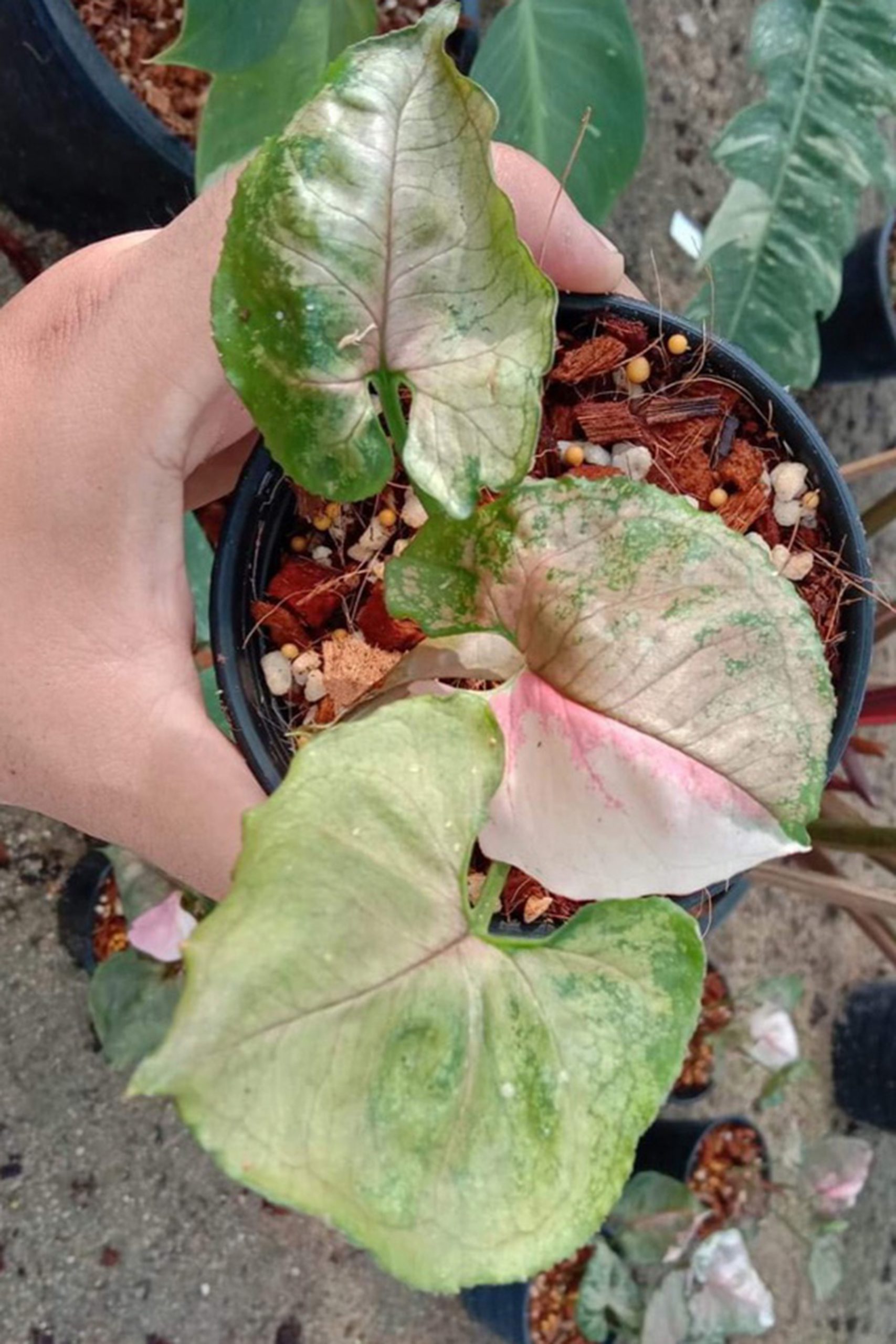
“Discover the Exquisite Beauty of Syngonium Strawberry Ice – Click Here to Bring Nature’s Masterpiece into Your Home Today!”
Syngonium species are the most sought after by aroid plant lovers
Propagation
Propagating Syngonium Strawberry Ice helps create new plants for your home or to share with friends. This variety propagates well from both stem cuttings and through division.
Stem Cuttings
Taking stem cuttings is the easiest way to propagate Syngonium Strawberry Ice. Simply cut off a stem with at least two nodes and place it in water or moist propagation mix. New roots will sprout from the nodes in a few weeks. Once rooted, plant the cutting in potting mix. The new plant will grow quickly and keep the stunning variegation.
Division
Mature Syngonium Strawberry Ice plants can also propagate by division. Carefully remove the plant from its pot and gently tease apart root clusters, making sure each division has some roots and stems with leaves attached. Replant divisions back into pots using fresh potting mix. Water well and grow as usual.
Pests and Diseases
Syngonium Strawberry Ice can be susceptible to certain pests and diseases, most of which are common issues for syngoniums in general. Being aware what to watch for allows taking quick action to protect the health of these beautiful plants.
Potential Pests
Potential pests to watch out for include:
- Spider mites – Tiny red or yellow spider-like pests that suck plant juices. Show up as visible webs and speckles on foliage. Can cause leaf damage if infestation grows.
- Mealybugs – Fluffy white cottony insects that leave sticky substance on plants as they feed. Can stunt growth and damage plant.
- Aphids – Small soft-bodied green, yellow, black or red insects that cluster on young plant parts and suck sap. Cause deformed and curled leaves. Leave sticky residue on foliage.
Possible Diseases
- Root rot – Shows up as stunted growth, yellowing leaves, and sudden plant collapse. Caused by overwatering and poor drainage.
- Leaf spot diseases – Various fungal diseases leading to spots, lesions, or necrosis on the foliage. Usually environmental issue with moisture or humidity levels being too high.
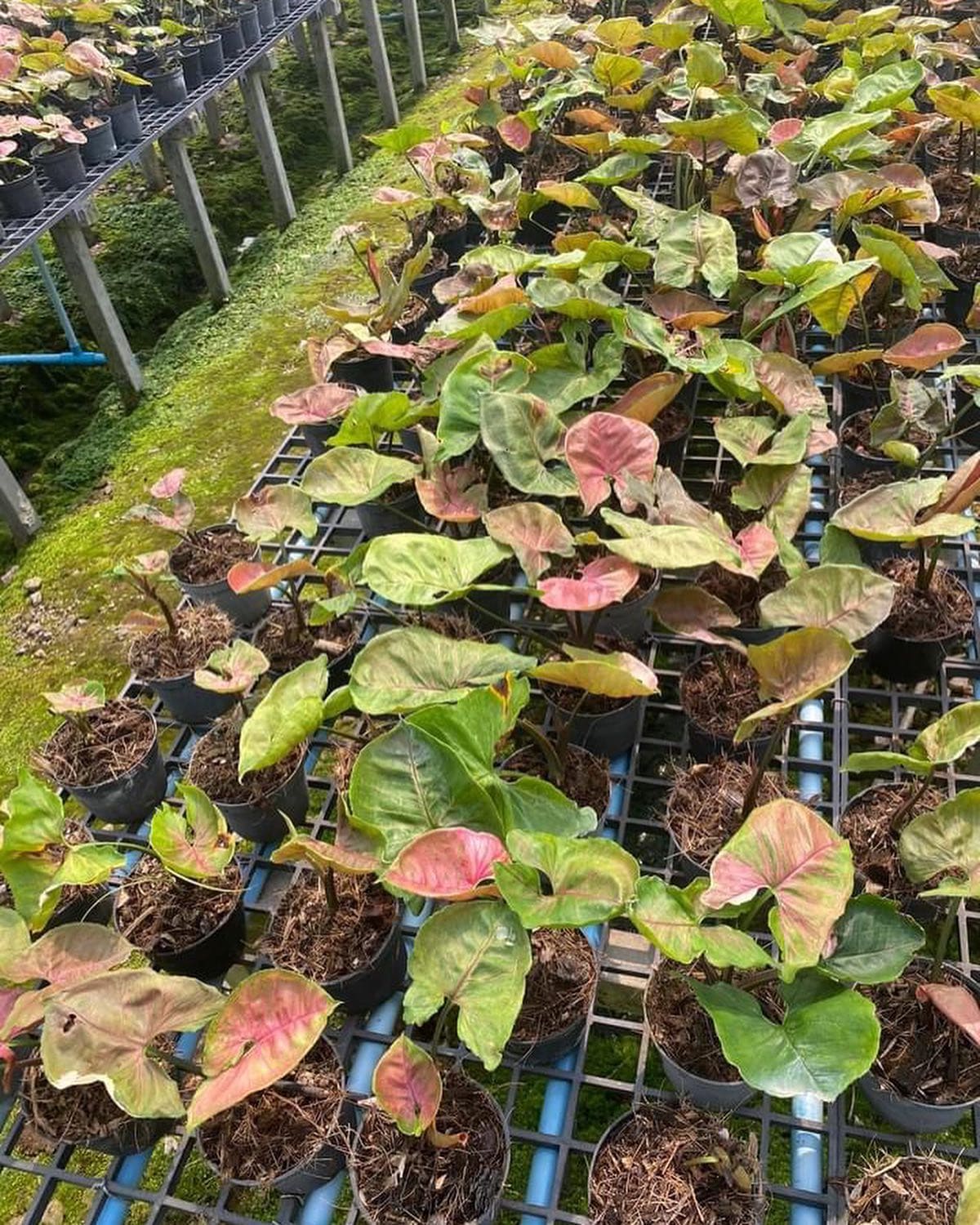
“Understand more about the common pests and diseases that affect Syngoniums and how to manage them by reading our comprehensive Syngonium Overview.”
Where to Buy Syngonium Strawberry Ice
The Syngonium Strawberry Ice plant gained quick popularity thanks to its gorgeous tricolor foliage. Due to high demand, it can sometimes be difficult to find at local garden stores. However, the plant is gaining better availability through online mail order plant retailers and Etsy shops specializing in rare houseplants.
Prices range widely based on plant size and availability. Small starter plants may cost between $50 to $100, while more mature and fully-established potted plants can cost several hundred dollars. Availability also fluctuates seasonally.
Here are some recommended mail-order plant stores to watch for the Syngonium Strawberry Ice:
- Steve’s Leaves
- Gabriella Plants
- Greenboog
- Bloomscape
- Etsy (various sellers)
Check retailer websites frequently and be ready to act quick once available for the best chance to add this beautiful new Syngonium cultivar to your plant collection!
Conclusion
With its vibrant tricolor foliage resembling dripping strawberry ice cream, Syngonium Strawberry Ice imparts show-stopping beauty sure to become an absolute favorite. This newer Syngonium offers lower maintenance than more delicate variegated varieties while still providing superb decorative impact. As availability continues improving, the desirability and collection-worthiness of Syngonium Strawberry Ice looks sure to keep increasing.
FAQ
- What is Syngonium ‘Strawberry Ice’? Syngonium ‘Strawberry Ice’ is a rare, variegated houseplant known for its unique pink and green foliage. It’s a tropical plant that belongs to the Araceae family.
- How do I care for my Syngonium ‘Strawberry Ice’? Provide bright, indirect light and maintain a consistent watering schedule, allowing the top inch of soil to dry out between waterings. It thrives in high humidity and prefers temperatures between 60-80°F (15-27°C).
- Is Syngonium ‘Strawberry Ice’ toxic? Yes, like other Syngonium species, the ‘Strawberry Ice’ is toxic if ingested. It contains calcium oxalate crystals, which can cause irritation and swelling of the mouth, throat, and stomach.
- How often should I repot Syngonium ‘Strawberry Ice’? Repot every 1-2 years or when the roots outgrow the current pot. Use a well-draining potting mix and a pot slightly larger than the current one.
- Can I propagate Syngonium ‘Strawberry Ice’? Yes, it can be propagated by stem cuttings. Place a cutting with at least one node in water or soil, ensuring high humidity and warm temperatures for optimal rooting.

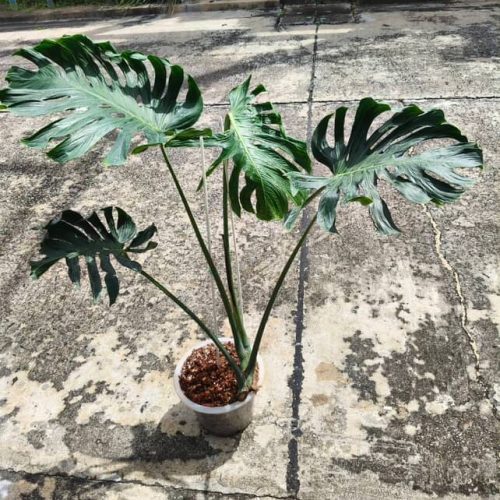
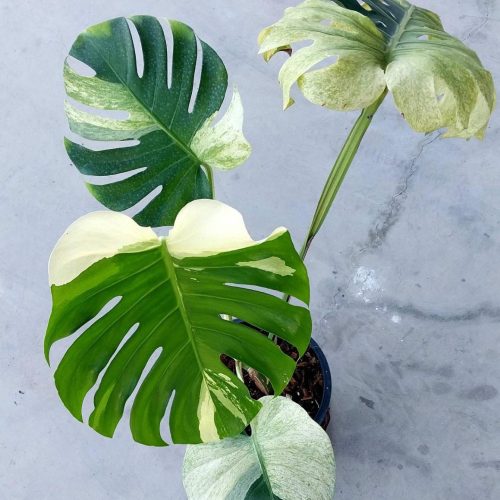


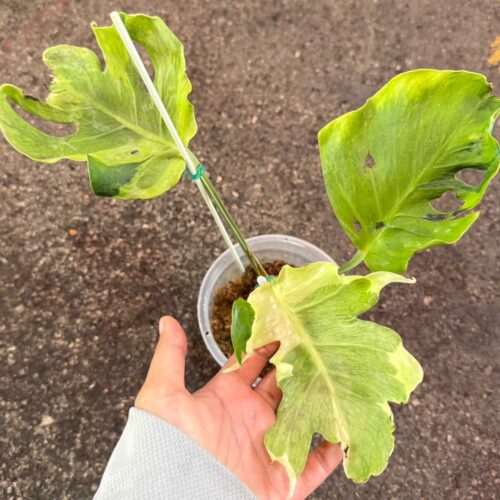
![12x Monstera Borsigiana Albo half leaves variegata [3-4 leaves]](https://greenboog.com/wp-content/uploads/2024/10/Monstera-Borsigiana-Albo-half-leaves-variegata-1-500x500.jpg)
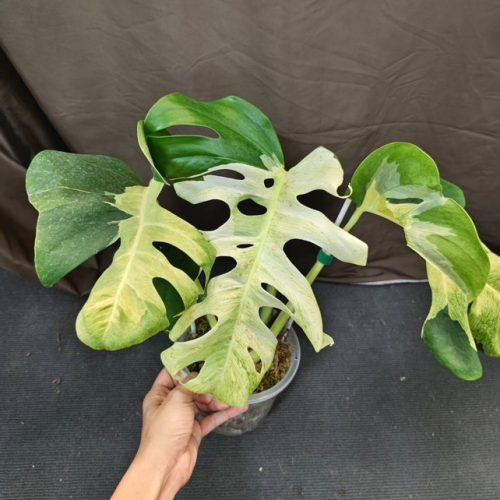

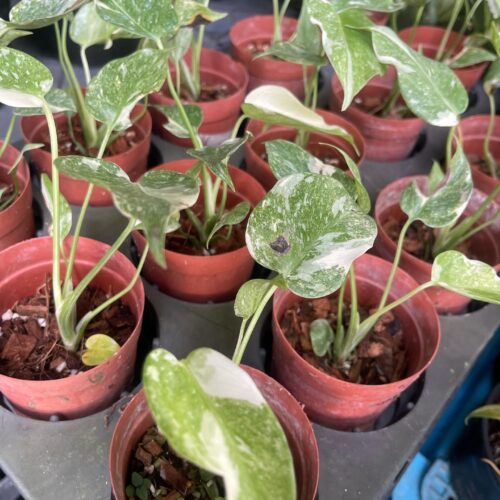
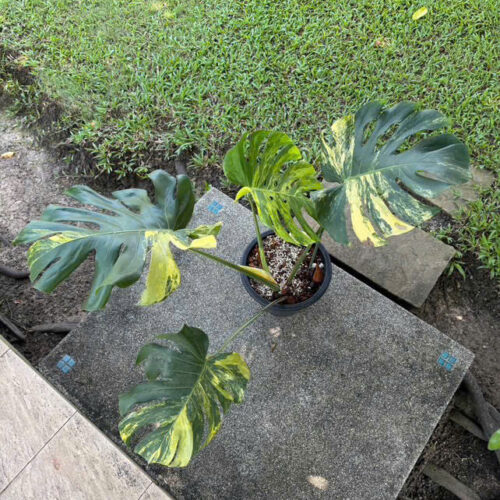
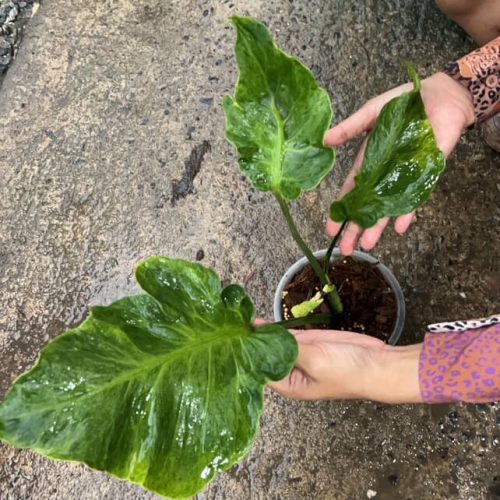
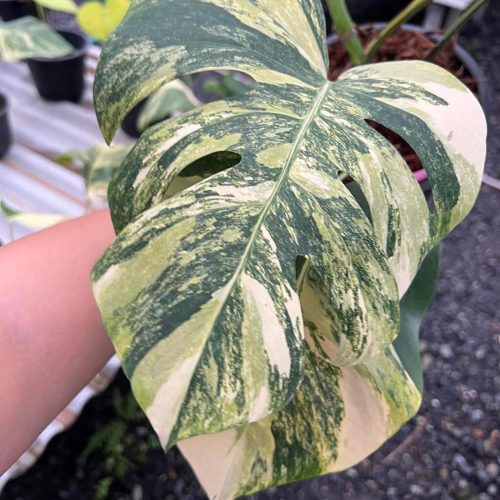
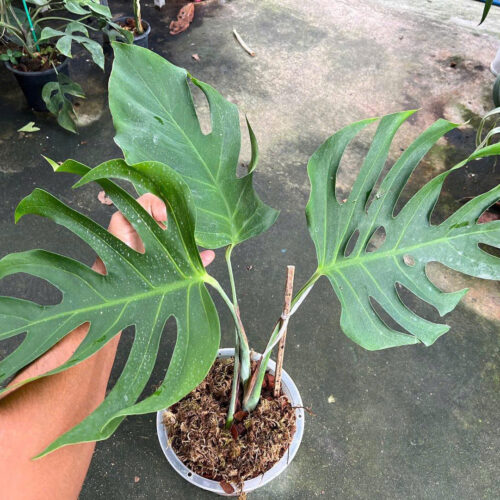
![10 Pots x Monstera Aurea Variegated / Mix Aurea tri color 3-4 leaves [well variegated]](https://greenboog.com/wp-content/uploads/2024/08/Monstera-Aurea-Tri-color-500x500.jpg)
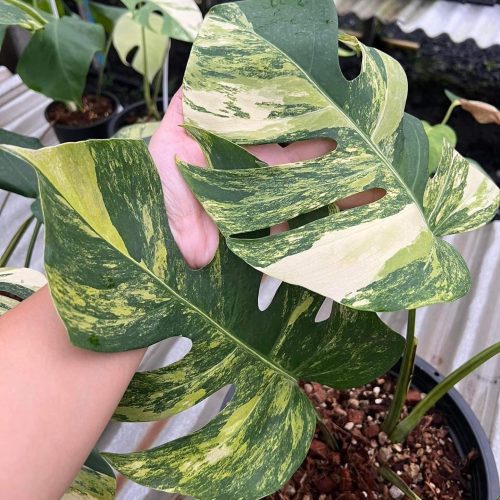
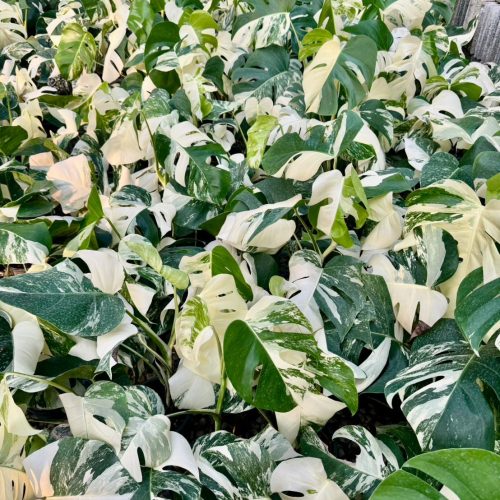
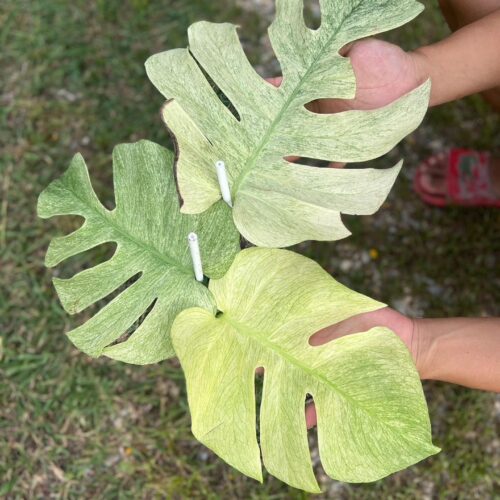
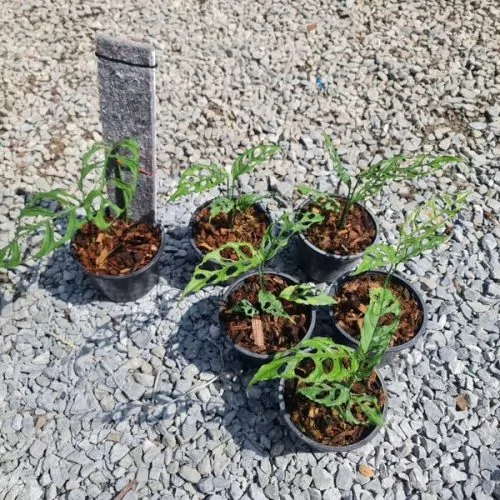
![[SALE] 10 Pots x Monstera Aurea Variegated 3-6 leaves [Medium size]](https://greenboog.com/wp-content/uploads/2025/01/Monstera-Aurea-variegated-4-6-leafs-500x482.jpg)

